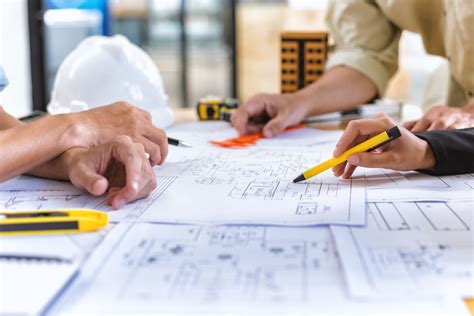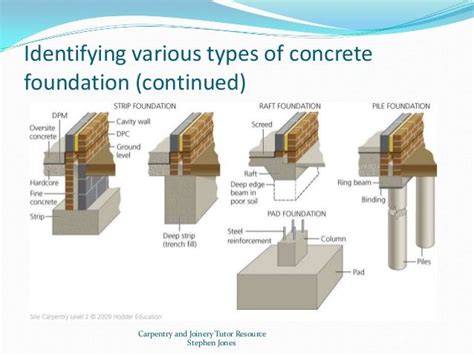Have you ever caught yourself daydreaming of a more spacious living environment? Perhaps you've found yourself imagining the possibilities of adding extra rooms or creating a new, bespoke area to enjoy with your loved ones. If the prospect of extending your current residence ignites a spark of excitement within you, then look no further. This comprehensive guide will equip you with all the knowledge you need to transform your dreams of a larger, more functional home into a reality.
Building an extension not only increases the size of your living space but also opens up a realm of potential for customization, design, and improved functionality. By expanding your home, you have the opportunity to tailor it to your unique preferences and needs, crafting a space that perfectly aligns with your lifestyle. From extra bedrooms for a growing family to a dedicated home office or a luxurious entertainment area, the possibilities are endless. With careful planning and expert advice, you can seamlessly blend additional square footage with your existing layout, resulting in a harmonious and visually stunning abode.
Embarking on a house extension project can feel overwhelming, especially for those unfamiliar with the intricacies of construction and design. However, armed with the right information and guidance, you can navigate through the process with confidence and ensure a successful outcome. From initial conceptualization and budgeting to obtaining the necessary permits and finding the right professionals to bring your vision to life, every step of the journey is crucial. We'll delve into the key considerations, potential challenges, and essential elements that will contribute to the success of your home extension project, empowering you to make informed decisions at every stage.
Assessing Your Space and Requirements

When it comes to considering the possibility of expanding your current living area, it is essential to evaluate and analyze the available space in your property, as well as identify your specific needs and preferences. By carefully assessing your space and requirements, you can determine the feasibility and practicality of extending your house.
To begin, take a thorough look at your existing floor plan and layout. Consider the dimensions, configuration, and utilization of each room, including any underutilized or unused spaces. Understanding the current allocation of space will help you identify potential areas that can be converted or expanded.
Next, contemplate your specific requirements and desires for the extended space. This could include the need for extra bedrooms, a larger kitchen or living area, an additional bathroom, or even a home office. Consider your lifestyle, family size, and any future changes that may affect your space requirements.
Additionally, take into account any specific functionality requirements. For example, if you love hosting gatherings or parties, you may want to consider creating an open-concept entertainment area, with easy access to outdoor space. On the other hand, if you value privacy and relaxation, you might prefer a separate relaxation zone away from communal areas.
| Key Considerations |
|---|
| 1. Space utilization |
| 2. Existing floor plan |
| 3. Potential conversion areas |
| 4. Desired additional spaces |
| 5. Lifestyle and future needs |
| 6. Functionality requirements |
By carefully assessing your space and requirements, you will have a clear understanding of the possibilities and limitations of extending your house. This evaluation will serve as a foundation for the subsequent stages of planning and executing your house extension project.
Understanding Local Building Regulations
In order to successfully execute any construction project, it is crucial to have a thorough understanding of the local building regulations. These regulations are a set of guidelines and requirements that dictate the specifications, standards, and procedures that must be followed when extending or modifying a property.
Comprehending local building regulations is essential to ensure the safety, legality, and compliance of your construction project. These regulations are put in place by local authorities to protect the interests of the community, maintain the integrity of the neighborhood, and promote sustainable development.
1. Researching the Building Codes: Familiarize yourself with the building codes specific to your location. Each area has its own set of regulations, and it is important to understand the requirements for permits, inspections, zoning, setbacks, and other key factors that may impact your project.
2. Engaging with Local Authorities: It is advisable to consult with the local planning and building authorities to gain insights into their specific guidelines. These authorities can provide valuable information about restrictions, limitations, and potential challenges that you may encounter during the extension process.
3. Hiring a Professional: Consider hiring an architect or a building professional with expertise in local building regulations. They can provide guidance, navigate the complex legal requirements, and ensure that your extension project is in compliance with all necessary regulations.
4. Understanding Permitting: Obtain the necessary permits before commencing any construction work. Failure to obtain the required permits can lead to fines, delays, or even the demolition of the unauthorized construction. Ensure you understand the process and documentation needed to secure the permits.
5. Prioritizing Safety and Quality: Local building regulations often focus on preserving safety standards and ensuring the quality of construction. Adhering to these regulations will help you create a structurally sound and functional extension that meets the required standards.
In conclusion, a solid understanding of local building regulations is essential when considering extending your property. By researching, engaging with authorities, hiring professionals, obtaining permits, and prioritizing safety and quality, you can navigate the regulatory landscape successfully and bring your dream extension to life.
Consulting with an Expert Architect or Designer

In order to transform your vision into reality, it is crucial to seek guidance from a skilled professional architect or designer. This section will highlight the importance of consulting with an expert in the field, emphasizing the expertise and knowledge they bring to the table.
Seeking Advice from an Experienced Professional
Engaging with an experienced architect or designer is essential when considering an extension or renovation project. These professionals possess the necessary skills and qualifications to guide you through the complex process of designing and implementing your ideas.
Harnessing Innovation and Creativity
An architect or designer brings a creative perspective to your project, offering innovative and practical solutions. They can provide you with fresh ideas, alternative approaches, and suggestions that can elevate your vision and ensure optimal use of space.
Understanding Technical and Legal Requirements
Consulting with an expert allows you to navigate the technical and legal aspects involved in the extension or renovation process. Architects and designers are well-versed in building codes, regulations, permits, and zoning restrictions, ensuring that your project complies with all necessary guidelines.
Collaboration and Communication
Working closely with an architect or designer fosters effective collaboration and communication. They will actively listen to your requirements, understand your goals, and incorporate your preferences into the design. This collaborative approach ensures that the final outcome aligns with your specific needs.
Budget-Friendly Solutions
An architect or designer will also take into consideration your budget constraints. Their expertise allows them to optimize and prioritize various design elements within your proposed budget, ensuring an efficient use of resources and cost-effective solutions.
Selection of Materials and Contractors
Another benefit of consulting with an expert is their ability to recommend suitable materials and connect you with qualified contractors. Their knowledge of the market and industry contacts ensures that you receive quality materials and services, further enhancing the success of your project.
In summary, consulting with a professional architect or designer is an integral step in the process of extending or renovating your home. Their expertise, creativity, and knowledge of technical and legal aspects contribute significantly to the success of your project, turning your ideas into a reality while ensuring the optimal use of resources and compliance with regulations.
Estimating the Cost and Setting a Budget
Planning to expand your residence beyond its current boundaries? It's essential to gauge the potential expenses involved and establish a suitable budget for your dream project. In this section, we will delve into understanding the intricacies of estimating costs, exploring various factors impacting the overall expenditure, and outlining a robust financial plan to ensure a successful house extension endeavor.
Before embarking on any construction venture, it is crucial to have a clear estimation of the projected expenses. A well-defined budget helps in setting realistic expectations and facilitating effective decision-making throughout the process. To accomplish this, consider starting with a thorough assessment of the extension's scope, taking into account the desired size, layout, and additional features you envision. This evaluation will lay the foundation for estimating the material costs, labor expenses, and any professional services required to execute the project.
| Expense | Description |
|---|---|
| Material Costs | Include the prices of building materials such as bricks, cement, wood, roofing, and insulation. |
| Labor Expenses | Factor in the wages of skilled workers, contractors, and builders involved in the construction process. |
| Professional Services | Consider hiring architects, structural engineers, electricians, and plumbers for their expertise and assistance. |
| Permits and Approvals | Account for the costs associated with obtaining necessary permits and approvals from local authorities. |
| Contingency Fund | Allocate a portion of the budget for unexpected expenses or unforeseen changes that may arise during the construction period. |
In addition to the tangible costs, it is vital to consider other factors that can influence the overall expenditure. These factors may include any customization requirements, site preparation expenses, demolition costs if applicable, and potential impact on existing utilities or infrastructure.
Once you have estimated the overall costs and identified the various influencing factors, it is time to set a realistic budget. Consider your financial situation, future plans, and the value that the extension will add to your property. It is prudent to aim for a budget that balances your ambitions while ensuring a financially sound investment. Keep in mind that allocating a portion of the budget as a contingency fund will provide a safety net for any unexpected circumstances that may arise during the construction process.
By estimating the cost and setting a well-planned budget, you can embark on your dream house extension journey with clarity and confidence. Having a comprehensive understanding of the potential expenses and a robust financial plan will help you navigate the complexities of the project and bring your vision to life within your means.
Choosing the Ideal Construction Method

Deciding on the optimal construction method is a crucial step when envisioning the expansion of your living space. It is paramount to carefully consider various factors and options in order to make an informed decision that aligns with your requirements and preferences.
Traditional Building Techniques: For those seeking a tried-and-true approach, traditional construction methods offer a solid foundation. These time-tested techniques provide stability and reliability, ensuring that your extended house will stand the test of time. From masonry to wood frame construction, these methods offer a familiar and proven path towards achieving your desired expansion.
Prefab and Modular Options: Are you looking for a more efficient and cost-effective solution? Prefabricated and modular construction methods present a compelling alternative. With their off-site fabrication and streamlined assembly process, these options expedite the building process while maintaining high-quality standards. This approach also provides increased flexibility, allowing for customizable designs that suit your specific needs.
Sustainable Building Practices: In today's environmentally conscious era, it's important to consider sustainable construction methods. Incorporating eco-friendly materials and energy-efficient designs can not only reduce your ecological footprint but also offer long-term cost savings. From passive solar design to green building certifications, these practices allow you to extend your house with a focus on sustainability and environmental stewardship.
Innovative Technologies: Embracing cutting-edge technologies can revolutionize your home extension project. From 3D printing to modular components, these innovative methods offer unparalleled precision and speed in construction. By leveraging the advancements in technology, you can create a truly unique and futuristic living space that meets your aesthetic and functional desires.
In conclusion, selecting the right construction method is a vital part of realizing your dream expansion. By understanding the various options available and considering your specific needs, you can make an educated choice that not only transforms your house but also enhances your lifestyle.
Managing the Project Timeline and Potential Challenges
In the process of bringing your vision to life and expanding your living space, it is essential to have a well-managed project timeline in place. This ensures that the project progresses smoothly and efficiently, avoiding unnecessary delays and complications.
Mapping out the project timeline: When undertaking a house extension, it is crucial to plan out the timeline from start to finish. This involves breaking down the project into stages, setting deadlines, and allocating resources accordingly. By creating a clear roadmap, you can keep track of the progress and ensure that all tasks are completed timely.
Identifying potential challenges: Every home renovation project comes with its fair share of challenges. It is important to proactively identify potential obstacles that may arise during the house extension. These challenges can include obtaining necessary permits, working with contractors, or unforeseen structural issues. By being prepared and thinking ahead, you can mitigate these challenges and minimize their impact on the project timeline.
Effective project management: Successful project management plays a crucial role in ensuring the smooth execution of a house extension. This involves coordinating with architects, contractors, and other professionals involved in the project. Regular communication, clear delegation of responsibilities, and effective problem-solving are key aspects of managing the project timeline.
Adapting to changes: During the course of a house extension, it is common for unexpected changes to occur. These changes may arise due to budget constraints, design alterations, or external factors beyond your control. Flexibility in adapting to these changes is essential to maintaining the project timeline. By being open to adjustments and finding creative solutions, you can effectively manage any deviations from the original plan.
Monitoring progress and addressing setbacks: Throughout the project, it is crucial to regularly monitor and evaluate the progress. This allows you to identify any potential setbacks early on and address them promptly. By having a proactive approach to problem-solving, you can keep the project on track and ensure that any challenges are resolved efficiently.
Overall, managing the project timeline and potential challenges is a fundamental part of successfully extending your house. By carefully planning, identifying potential obstacles, and effectively managing the project, you can bring your dream of a larger living space to reality.
FAQ
What are the benefits of extending my house?
Extending your house offers several benefits such as creating more space for your growing family, increasing the value of your property, and avoiding the hassle of moving to a new house.
What is the cost involved in a house extension?
The cost of a house extension can vary greatly depending on various factors such as the size of the extension, the type of materials used, and the complexity of the project. It is advisable to consult with a professional and obtain detailed quotes to get an accurate cost estimation.
Do I need planning permission for a house extension?
In many cases, house extensions require planning permission. However, certain small-scale extensions may be covered under permitted development rights, which means you don't need specific planning permission. It is crucial to consult with your local planning authority to determine the requirements for your specific project.
How long does a house extension typically take to complete?
The duration of a house extension project can vary depending on various factors such as the size and complexity of the extension, the availability of materials, and the weather conditions. On average, a straightforward house extension can take anywhere from a few months to a year to be completed.
What should I consider when hiring a contractor for my house extension?
When hiring a contractor for your house extension, it is crucial to consider their experience, qualifications, and reputation. Obtain multiple quotes, check references, and ask for examples of their previous work. It is also important to have a clear written contract outlining all details of the project, including the timeline, cost, and warranty.



